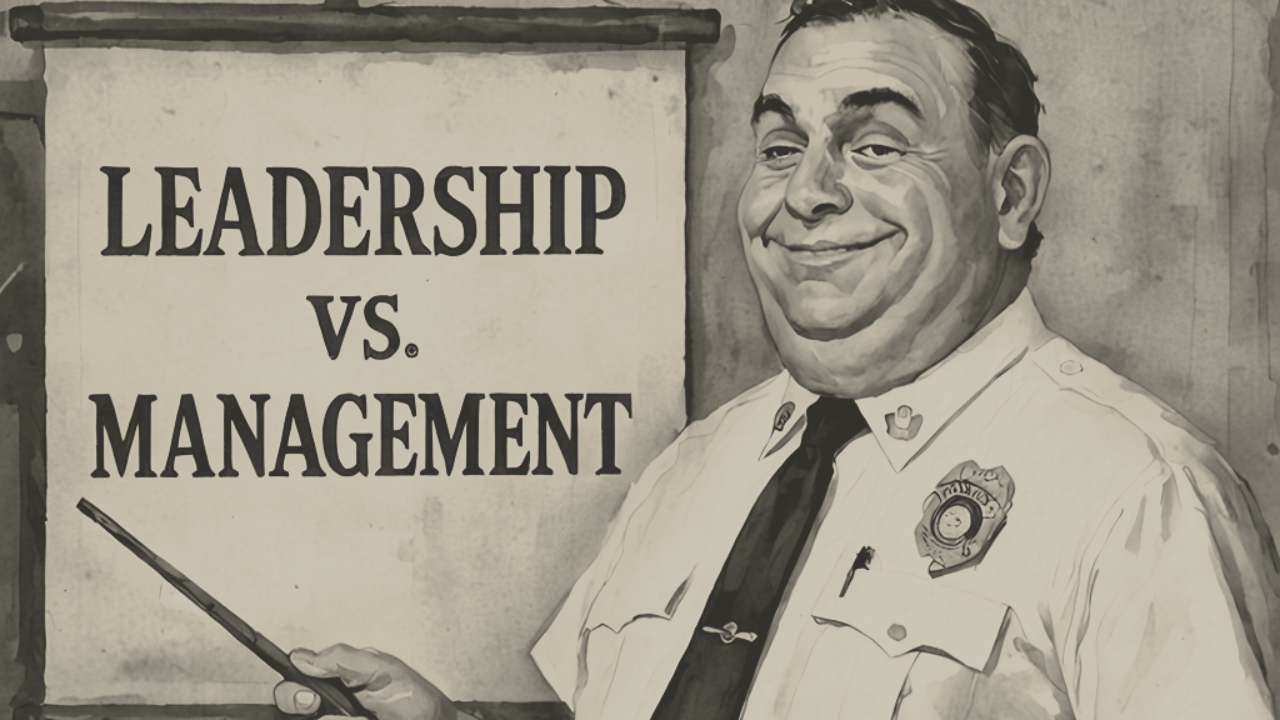When Leadership Meant Something

When Leadership Meant Something
An honest look at what we’ve lost — and what we still need.
“Leadership vs. management.”
It’s been said. Over-said.
Written in handbooks, sketched on whiteboards, printed across PowerPoint slides with arrows and charts.
You’ve heard it all before.
But if you’ve got a few minutes, I’d like to take another look.
Not at the bullet points.
At the feeling.
Because once upon a time, we followed men who didn’t need buzz-words or polished resumes.
We followed them because of who they were — and how they showed up.
They didn’t just manage us.
They carried us.
Leaders of Men, Not Just Organizers of Tasks
In places where it matters — on the fireground, in the military, in police work, special operations — managing the job has never been enough.
You don’t just need answers.
You need belief.
You need someone who knows what to do when things don’t go right.
Someone to remind you what you’re doing it for in the first place.
Look back through the decades and you’ll see them:
- General Patton — unapologetic, relentless, a man of action and vision.
- Winston Churchill — who stood between his country and collapse with little more than words and resolve.
- Chesty Puller — the kind of leader who would never ask a man to do what he wouldn’t do himself.
- Norman Schwarzkopf — who said, “Leadership is a potent combination of strategy and character. But if you must be without one, be without strategy.”
They weren’t perfect. But they weren’t pretending.
They stood for something.
And others stood with them.
Then Something Changed
We don’t talk about it much, but you can feel it.
The air is different.
At some point, a quiet drift began — from presence to policy, from mission to metrics.
The officer’s seat didn’t move, but the kind of man sitting in it did.
And now?
Now, in too many places, we have administrators with titles like “leader,” but no scars, no stories, no earned weight.
We have email chains where mentorship used to live.
Initiatives where culture used to breathe.
The street didn’t ask for this.
The job didn’t ask for this.
But the change came anyway — slow, polite, corporate.
The Office Leaked Into the Street
You see it in the memos.
In the checkboxes.
In the quiet frustration of men who used to care and now just comply.
We started running fire departments like corporations.
We replaced the senior man with a "professional development specialist."
And somewhere in the middle of all the evaluations and tracking software,
we lost the one thing that ever actually moved people:
Trust.
This Isn’t a Rant. It’s a Reminder.
No, this isn’t a “back in my day” piece.
And it’s not a list of leadership tips.
This is just a look.
A moment to pause.
To remember what it felt like to be led by someone who actually gave a damn.
Who showed up.
Who knew.
And who wasn’t afraid to say: “This is ours. And I’ll carry it.”
Before We Forget Entirely
Leadership isn’t management.
It’s not data.
It’s not a quarterly review or a polished quote hanging on the wall.
Leadership is the quiet weight a man carries when the culture depends on him.
And right now, more than ever, we need men to pick that weight back up.
Because if we don’t,
we’ll keep drifting.
And soon, the places that once shaped warriors will be run like office parks.
And you can’t put fires out with pencils and spreadsheets.